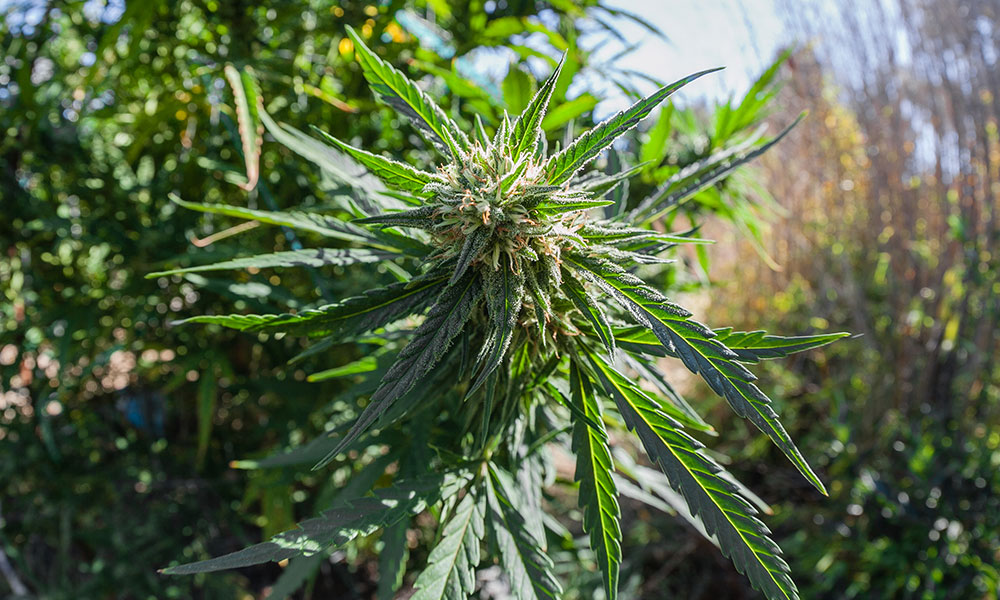You are here
Home 🌿 Cannabis Technology News 🌿 The Art of Terpene Recreation: Replicating Cannabis Strain Profiles 🌿The Art of Terpene Recreation: Replicating Cannabis Strain Profiles

While cannabis strains are typically praised for the strength and effects of their cannabinoids, a growing number of connoisseurs and industry pros alike are recognizing that a strain’s terpene profile can be of equal import.
Terpenes, the aromatic compounds found in all plants, give each strain its particular taste and scent. A cannabis plant can contain over 100 different terpenes, and the particular balance of each helps set it apart from its peers. As cannabis moves closer to the mainstream, more consumers are becoming curious about terpene profiles — particularly those of legendary strains like Jack Herer and Pineapple Express. Luckily, a range of products have appeared on the scene to help people get a taste of the OGs.
(Re)making the Magic Happen
Lock & Key Remedies, in the industrial neighborhood of Sunset Park, Brooklyn, is one of these terpene-focused businesses looking at strain recreation. The company, co-founded by industry veterans Oleg MaryAces and Andres Moreira, has developed a series of CBD vape cartridges that try and recreate the terpene profiles of four iconic strains: Girl Scout Cookies, Cherry Pie, Tangie and Blue Dream. When I visited the company’s office on a gray morning this January, it quickly became clear that Lock & Key’s vision is rooted in a love both for precise science and cannabis itself.
The company’s name, for instance, refers to the way compounds interlock with each other on a cellular level. And Lock & Key uses pre-existing lab reports of various strain profiles as launching-off points for developing their own CBD alternatives. Moreira, who heads the company’s on-site lab, went through a dozen trials of each formulation before sending them to market.
Maryasis was eager to explain terpenes’ myriad health benefits to me, which he did in a manner that recalled a mad scientist and a gourmand chef in equal measure. The terpene myrcene, for instance, has a sedative effect, he says. Furthermore, Maryasis told me, “it has the superpower of helping the blood brain barrier, which magnifies all other terpenes’ access to the brain.” Limonene, which features more prominently in the Tangie strain, has a more citrusy taste. But too much, Maryasis cautioned, “wouldn’t be pleasant, even if you like citrus.”
He pointed out that even trace amounts of various terpenes can have an outsized influence on a plant’s aroma. “The synergistic effects cannot be overstated,” he said, citing sweet orange and grapefruit as an example: “[Their terpene profiles are roughly only 3 percent different], but it changes everything about them.”
Twisting Terps Into Innovation
Other terpene-minded businesses have taken a different approach: Blue River Terpenes, in Oakland, California, for instance, borrowed inspiration from the fragrance industry to develop a line of cannabinoid-free versions of some top-shelf strains including Cookies and Wakanda Grapes (and sells them at top-shelf prices) that can be applied to the skin or even added to food. The company’s CEO Tony Verzura developed a modified vapor vacuum distillation system that, as Leafly pointed out, is capable of extracting terpenes “by using only nitrogen, oxygen, and reverse osmosis (or RO) water.”
Finding the middle ground between these two companies, the Colorado-based company Evolab adds “FreshTerps” extracts to their various products in various proportions. Their tagline reads: “Sommeliers have wine collections. Cannabis connoisseurs have FreshTerps.”
The key behind all of these products is the balance of the various terpenes; Maryasis referred to it as their “special sauce,” and was reluctant to divulge even the most general information about their specific ratios. Yet their tight-lipped approach reinforces the innovative nature of terpene science, which will only become more exciting as the industry marches forward.
While Lock & Key Remedies uses plant-derived terpenes and Blue River Terpenes uses cannabis-derived terpenes, other companies are also concocting strain profiles using synthetic terpenes. The science is still early on the medical effects of vaping terpenes, but as with most cannabis products, it’s best to know where the compounds you’re consuming come from.
420 Intel is Your Source for Marijuana News
420 Intel Canada is your leading news source for the Canadian cannabis industry. Get the latest updates on Canadian cannabis stocks and developments on how Canada continues to be a major player in the worldwide recreational and medical cannabis industry.
420 Intel Canada is the Canadian Industry news outlet that will keep you updated on how these Canadian developments in recreational and medical marijuana will impact the country and the world. Our commitment is to bring you the most important cannabis news stories from across Canada every day of the week.
Marijuana industry news is a constant endeavor with new developments each day. For marijuana news across the True North, 420 Intel Canada promises to bring you quality, Canadian, cannabis industry news.
You can get 420 Intel news delivered directly to your inbox by signing up for our daily marijuana news, ensuring you’re always kept up to date on the ever-changing cannabis industry. To stay even better informed about marijuana legalization news follow us on Twitter, Facebook and LinkedIn.




